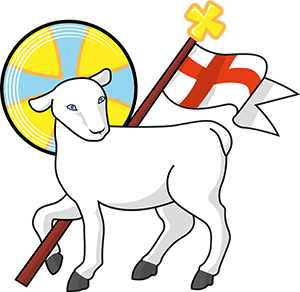Maths
At St John the Baptist Primary School, we are committed to the Teaching for Mastery philosophy, ensuring that all children develop a secure understanding of mathematical concepts and processes, alongside genuine fluency when completing calculations. We want every child to leave us with a joy of discovery in maths, equipped with the skills to work with increasing fluency, accuracy, and systematic thinking.
Our pupils are encouraged to clearly explain their reasoning, identify and correct their own errors, and apply their knowledge confidently in a range of contexts. Guided by our Christian values of Compassion, Courage, and Creativity, children are inspired to persevere when faced with challenge, collaborate with others, and see mathematics as both purposeful and enjoyable.
The National Curriculum for Mathematics underpins our intent, ensuring that all pupils:
-
Become fluent in the fundamentals of mathematics through varied and frequent practice
-
Reason mathematically by following lines of enquiry, making generalisations, and justifying arguments using mathematical language
-
Solve problems by applying their mathematics to routine and non‑routine situations, breaking down problems into smaller steps and persevering in seeking solutions
At St John’s, we use the Concrete, Pictorial, Abstract (CPA) approach to teaching maths and are embedding the Teaching for Mastery principles into daily lessons.
-
Concrete manipulatives such as dienes, numicon, counters, number lines, and multilink are available in classrooms to support understanding of new concepts.
-
Pictorial representations are modelled to help children make connections between concrete and abstract learning.
Our maths curriculum is mapped to ensure coverage of the National Curriculum, while remaining flexible to meet the needs of each cohort and address gaps from previous learning. Teachers break down learning journeys into small, coherent steps that build upon prior knowledge.
Children are provided with opportunities to:
-
Retrieve and apply prior learning
-
Enhance fluency through practice
-
Develop reasoning skills using stem sentences and mathematical vocabulary
-
Solve problems and make meaningful connections across domains
Teachers receive ongoing professional development to deepen their understanding of Teaching for Mastery, supported by resources such as White Rose Maths and NCETM materials.
The impact of our maths curriculum is evident in:
-
Well‑planned sequences of learning with small‑step progression
-
Tasks pitched appropriately for age and stage
-
Children confidently using stem sentences to explain reasoning and make links to prior knowledge
-
Pupils articulating their understanding using precise mathematical language
-
Effective modelling of the CPA approach to build secure conceptual knowledge
-
Children showing confidence when talking about maths and demonstrating resilience when solving problems
-
Children using the learning environment, including working walls, to support and guide their learning
What our children say:
“Maths is good because I get to count the numbers to 20.”
“I like learning my times tables in Maths.”
“Maths is good because I have to think hard to solve problems.”
“I like doing Maths on whiteboards.”
“I can count with my mum – 1, 2, 3, 4, 5, 6, 7, 8, 9.”
Useful websites to improve your child's knowledge and skills at home:
Fun maths activities for home educating families - BBC Bitesize
Useful information for Parents:
